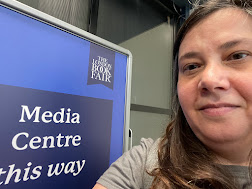When writing about research mind your audience

This podcast was originally published at PhD Career Stories.
If the reader is to grasp what the writer means, the writer must understand what the reader needs.
– Judy Swan & George D. Gopen
In episode 15 of PhD Career Stories, Jo Havemann returns for a tips & tricks-themed podcast. In this episode, we learn more on why it is crucial to be aware of your audience when writing about your research.
Transcript
Today, let us talk about some aspects of Scientific Writing.
Throughout your career as a scientist, you will have to write a lot of papers and also other formats, like conference proceedings, funding proposals, commentaries, book chapters – you name it. For each of these, it is crucial to be aware of your audience.
Who are you writing this for: Other scientists – within your discipline or is your research of interdisciplinary relevance? Are you addressing policy-makers, journalists, the general public, undergraduate students or the committee of a funding agency? Or are you writing for all of the above-mentioned people, really? Potentially: yes. And yet, try and figure out who your main target audience is.
How much do they already know about your topic: What is the context and why is it interesting? Do you need to start from the bigger picture, slowly zooming in and skipping some of the details? Is everyone familiar with the acronyms? Or is it field-specific and you can jump right into the essence talking about every single detail you investigated? Even if your readers are likely to be familiar with the context, remind them and describe what is already known about it in your discipline in particular and also more generally.
Why are you writing this, i.e. what message do you want to get across to your readers? Make it an easy-to-grasp 3-point take-home message. Anything beyond won’t stick to your readers’ minds anyhow so keep it as simple as possible while ensuring relevance and impact of your work.
And most importantly, make up your mind how you can convince your readers. This is probably the trickiest part and I’m very sorry that you will have to figure out that one by yourself. It asks for a clear structure, precise description of the context, line of argumentation that brings up the logic for your set of experiments and questions you raise around your research topic – thereby challenging the status quo.
Finally, I have a homework for you: Write a short summary of no more than three sentences on each of your research projects. Give a brief context highlighting the relevance, your approach – which could mention a certain method you apply, and what you expect to find or how you will solve a longstanding question in your field with your results. Try to write this in two, and not more than three sentences. It is tricky and you can ask your peers for feedback and input. Once you have a final version you are happy with you will feel much more content about your work and it will also give you an intro to any sort of written and oral communication in a scientific context.
Do let us know in the comments, if any of this was helpful and also feel free to share your homework outcomes.


